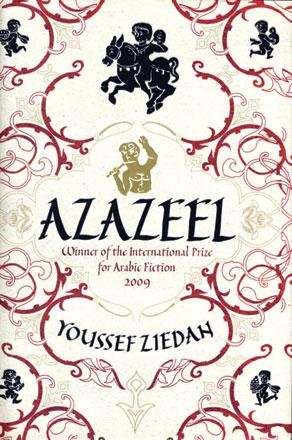You are here
‘Storms we have stifled’
By Sally Bland - Sep 27,2015 - Last updated at Sep 27,2015

Azazeel
Youssef Ziedan
Translated by Jonathan Wright
London: Atlantic Books, 2013
Pp. 312
Youssef Ziedan’s novel, “Azazeel”, has many layers, each of them fascinating in its own right. At the narrative level, it is the diary of a 5th century monk named Hypa, who undertakes a number of significant journeys, spiritual and temporal. Born in Upper Egypt along the Nile, the disintegration of his family leads him to migrate to Alexandria, then
Jerusalem, Syria, north of Aleppo, and Antioch. Other layers of the story involve history, culture, philosophy, psychology, love, religion and spirituality.
Hypa’s descriptions of the people, landscapes, cities and customs he encounters weave a fascinating tapestry of life in a time which is largely forgotten. It is a multilingual and multicultural world peopled by Greeks, Arabs, Kurds and Turks, speaking Syriac (Aramaic), Greek, Arabic, Coptic, etc. It is also a world in transition and turmoil as Christianity advances at the expense of paganism, only to be embroiled in internal doctrinal squabbles.
While all the information which Hypa imparts on ancient history points to continuity in human civilisation and spirituality, part of the Christian clergy is hell-bent on a total rupture with everything associated with paganism and Judaism, even if it means persecuting innocent people, denying previously acquired scientific knowledge, and banning and burning books.
The deepest layer of the story is spiritual/psychological, concentrated in what Hypa’s diary reveals about his inner world, for he is not a self-satisfied monk. With the exception of a few episodes, he records his memories in a trembling, anxious voice. Though gifted in theology, poetry and medicine and meticulously observing the rules of monastic life, he is ever doubtful of himself and his faith, and only periodically achieves the serenity to which he aspires. He is tormented by his own lapses though they are few and far between.
His anxiety is all the more acute since he believes that it is Azazeel — the devil — pushing him to record his life story. Indeed, Azazeel does pop up from time to time as he writes, spicing the narrative with his biting sarcasm and providing a bit of comic relief. These frequent appearances make it harder for Hypa to deny that Azazeel is not an external force, but a part of himself.
The writing process only increases Hypa’s agony: “Writing raises within us storms we have stifled, digs our memories out of their hiding places and brings to mind the most atrocious of happenings. In distant, receding periods of my life my faith has consoled me and filled me with joy. But today gloom surrounds me on every side and tempests rage within me… ” (p. 36)
He shudders as he recalls the terrible cruelties he has witnessed inflicted on persons, including his loved ones, who did not conform to prevailing doctrine; he agonises over his own cowardice that blocked him from saving them. As strife within the church increases, his dismay often makes him physically ill. “The past was leaping ahead of us from its hiding place, and the claws of hatred were about to dig into our bare backs.” (p. 196)
Hypa’s problem is that he is a normal human being, sincere in his faith but with many questions to the dogmas being imposed; he sympathises with the views of those who are being persecuted, and keeps the forbidden religious books hidden under his bed. He loves music that is frowned upon, and falls in love with a woman — forbidden for a monk. To him, the essence of Christianity is love, self-sacrifice and forgiveness, but he sees the Church going in another direction. Still, he remains paralysed, caught in a dilemma: “Jesus the Messiah began his great mission among the people, not between walls amidst monks and priests. There was real life around him, yet why should we die before death comes? But I am safe in the church, after I was homeless…” (p. 115)
Besides enriching our view of the past and telling a mesmerising story, Ziedan mounts a powerful critique of fundamentalisms of all types, and shows the dire consequences of intolerance. Hypa’s story graphically illustrates how religion can be interpreted selectively in order to serve the interests of the power-hungry. In Hypa’s time, it was Christian bishops calling for holy war and persecuting so-called heretics in a way very similar to the Daesh today, though Ziedan’s awareness of these dangers predates recent events. (The Arabic original of “Azazeel” was published in 2009.)
Only upon finishing the book will one understand why Ziedan named it after Azazeel rather than Hypa. “Azazeel” is available at Readers/Cozmo.
Related Articles
The relationship between Arab intellectuals and regimes does not necessarily entail conflict, according to renowned Egyptian novelist Youssef Ziedan.
Joey Alexander’s favourite things include the Avengers, SpongeBob and Thelonious Monk. He’s a normal 11-year-old kid who just happens to be a jazz piano prodigy from Indonesia and has already impressed such jazz luminaries as Wynton Marsalis and Herbie Hancock.
The Mercy SellerBrenda Rickman VantreaseNew York: St.














